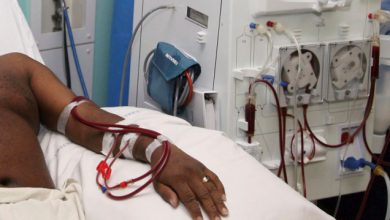Uncategorized
Coronavirus: North-South divide ahead of key EU meeting

The coronavirus pandemic has exposed deep divides in Europe, with EU member states arguing over how to tackle the economic fallout.
Italy and Spain have accused northern nations – led by Germany and the Netherlands – of not doing enough. Spanish Prime Minister Pedro Sánchez has even warned that if the EU fails to come up with an ambitious plan to help member states saddled with debt by the fight against coronavirus, the bloc could “fall apart”.
EU Council and Commission chiefs released a statement on Monday that said a “strong package is in the making”. Eurozone finance ministers will hold a teleconference later on Tuesday.
But a similar meeting two weeks ago bore little fruit. As a result, leaders sent their finance ministers back to the drawing board.
Italy, Spain, France and some other EU states want to share out coronavirus-incurred debt in the form of “coronabonds” (or eurobonds) – mutualised debt that all EU nations help pay off.
Some from these hard-hit nations have been angered by a perceived indifference from other EU states.
Wealthier countries like Germany are not yet digging deeper into their pockets to help out poorer nations like Italy and Spain.
Italy remains the epicentre of the crisis in Europe, with the highest death toll – more than 16,500; next comes Spain, with nearly 14,000 deaths, Johns Hopkins University data shows.
Even before the economic damage of this crisis, Italy’s public debt was 133% of its GDP (total output), or about $2.3tn (£2tn) – the highest in the eurozone after Greece.
Germany wants to set up an EU rescue fund and lend using mechanisms set up during the financial crisis of a decade ago.
This week, a group of Italian mayors and other politicians bought a page in Germany’s Frankfurter Allgemeine Zeitung newspaper to remind Germany that it was never made to pay back its debts after World War Two.
Public opinion has also been shifting in Germany.
Economists, politicians and commentators who once railed against mutualising eurozone debt to bail out Greece amid the last financial crisis are calling for exactly that to help Southern Europe deal with the coronavirus.
Even the German tabloid Bild, that led the anti-Greece charge 10 years ago, is now calling for so-called coronabonds. The situation today is more like a natural disaster then a crisis sparked by risky lending, they argue.
For years some economists have urged the eurozone to issue common bonds, to address the structural fragility that the euro crisis exposed. But others, mainly in northern Europe, argue that taxpayers in wealthier countries should not have to bail out countries whose politicians were fiscally irresponsible.
Source: Fiilafmonline/BBC



